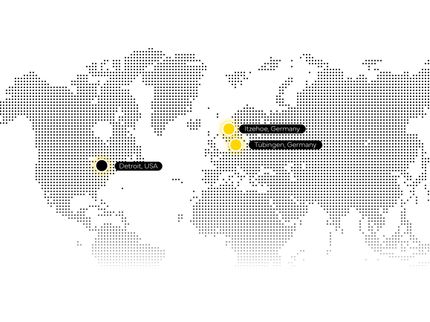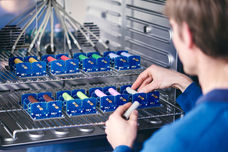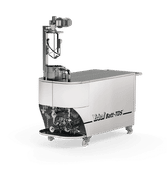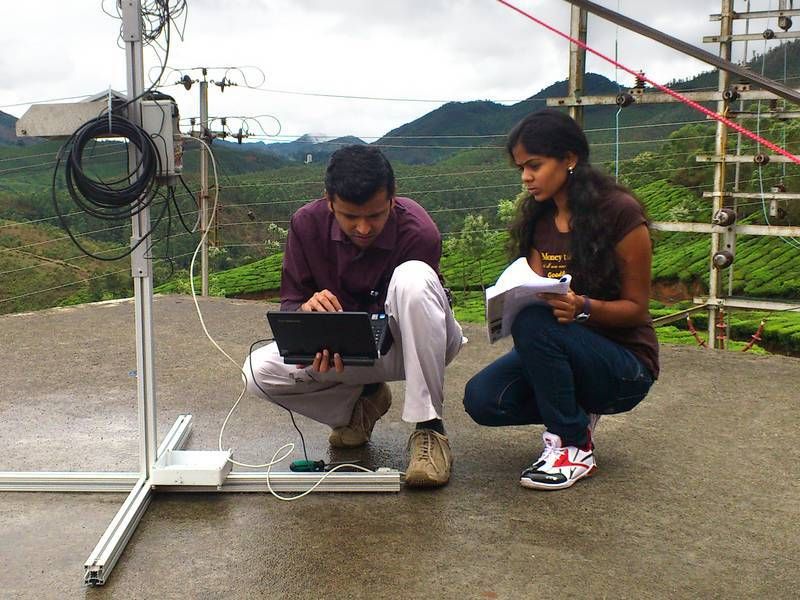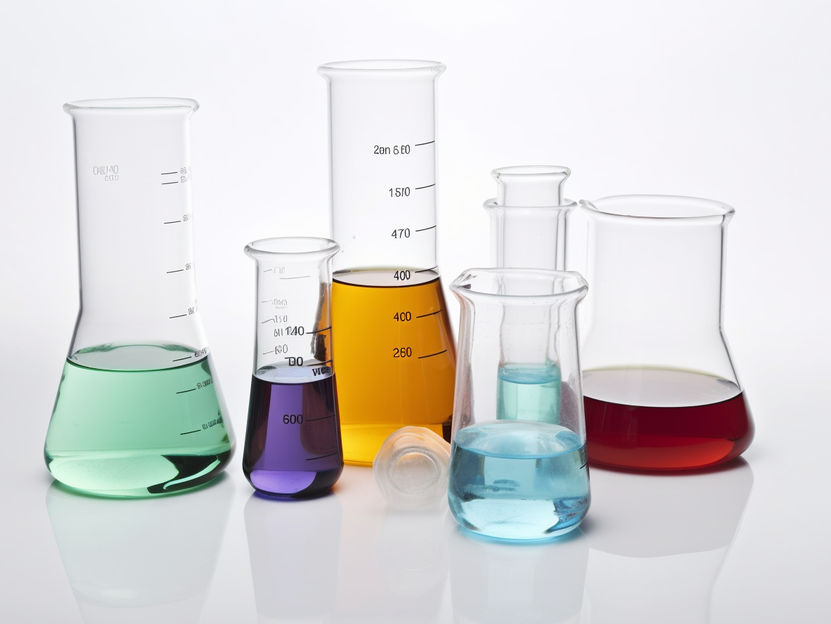BASF and Porsche partner to develop high-performing lithium-ion battery for electric vehicles
BASF to recycle production waste from cell manufacturing at Cellforce Group to close the loop
BASF has been selected by Cellforce Group, a joint venture between Porsche and Customcells, as the exclusive cell development partner for its next generation lithium-ion battery. As part of the collaboration, BASF will provide high-energy HEDTM NCM cathode active materials to contribute to high-performance battery cells for fast charging and high energy density. Cellforce Group, based in Tübingen, Germany, will produce the high-performing battery. Its battery production plant is expected to start operations in 2024 with an initial capacity of at least 100 MWh per year, powering 1,000 motorsport and high-performance vehicles.
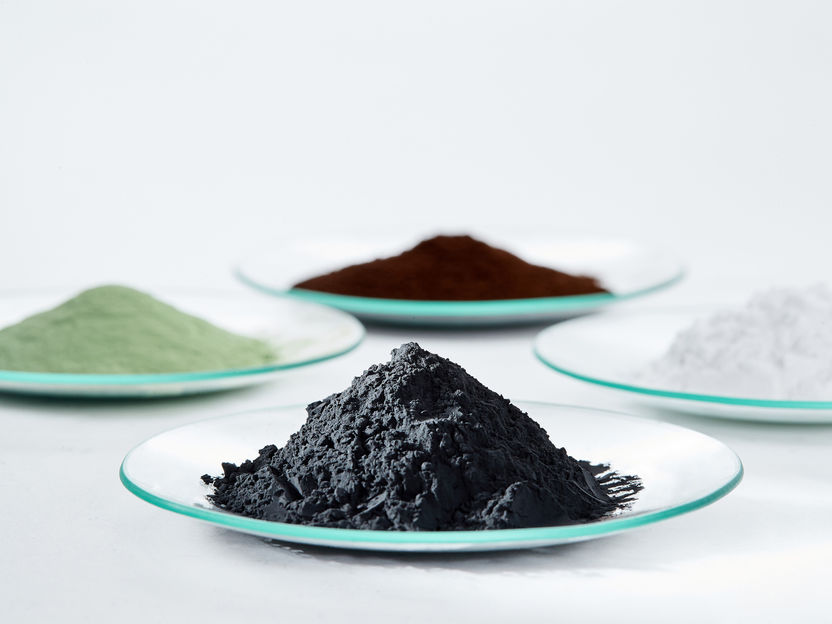
Key to powerful battery materials: Precursor cathode active materials (green and brown powder), lithium carbonate (white powder) and cathode active materials (black powder).
BASF SE
As a global leading supplier of high-performance cathode active materials with a strong R&D network, BASF is ideally positioned to work with partners to contribute to a circular economy. With its production plants for precursor cathode active materials in Harjavalta, Finland, and for cathode active materials in Schwarzheide, Germany, BASF will be able to provide battery materials with an outstanding sustainability record for both responsible and reliable sourcing of raw materials aiming for the lowest carbon footprint along the supply chain as of 2022. To close the loop, production waste from the future Cellforce Group battery plant will be recycled at BASF’s prototype plant for battery recycling in Schwarzheide, Germany. Lithium, nickel, cobalt, and manganese will be recycled in a hydrometallurgical process and re-introduced into BASF’s production process for cathode active materials.
“We look forward to collaborating with Porsche and the Cellforce Group to develop future high-performance batteries for electric vehicles and work together towards our common goal of sustainable mobility,” says Dr. Markus Kamieth, Member of the Board of Executive Directors of BASF SE. “BASF’s cathode active materials will be tailored to Porsche’s specific needs leveraging our strong R&D capabilities. Furthermore, they will have an industry leading low CO₂ impact thanks to our efficient manufacturing process, the high share of renewable energy, the upstream integration into the key raw materials as well as the short transportation route along the value chain. With battery recycling we can ensure that valuable materials are kept in the production loop and further reduce the CO2 footprint of our cathode materials by an expected total of up to 60%.”
“As an automotive manufacturer, Porsche aims to be CO2-neutral in its overall balance sheet by 2030. In this respect, a low CO2 footprint, closed-loop recycling and sustainability are increasingly in the foreground,” says Michael Steiner, Member of the Executive Board for Research and Development at Porsche AG. “The cooperation with BASF is a win-win situation for all parties involved. European sources for the materials nickel and cobalt, the associated security of supply and the short transport routes from Schwarzheide to Baden-Württemberg in Germany were all important arguments for the decision to work with BASF. The battery cells - especially the cathode active materials - are at the center of considerations here. We are very pleased that together with BASF we are bringing an environmentally friendly cell technology to series-production readiness.”
“With its in-depth expertise in cathode active materials, BASF supports us in a core area of cell development,” adds Markus Gräf, Managing Director of the Cellforce Group. “The cathode active materials show very high cycle stabilities right from the start and are particularly good at fast charging. These are exactly the properties that Cellforce was looking for. BASF is also very committed to adapting the cathode active materials to the requirements of next generation silicon anodes. And in the production area, too, we have worked out a concept together with BASF on how production waste generated in the various areas can be collected and returned to closed-loop recycling. This saves costs and conserves resources as well as the environment.”
Other news from the department business & finance
These products might interest you
Most read news
More news from our other portals
See the theme worlds for related content
Topic World Battery Technology
The topic world Battery Technology combines relevant knowledge in a unique way. Here you will find everything about suppliers and their products, webinars, white papers, catalogs and brochures.

Topic World Battery Technology
The topic world Battery Technology combines relevant knowledge in a unique way. Here you will find everything about suppliers and their products, webinars, white papers, catalogs and brochures.
